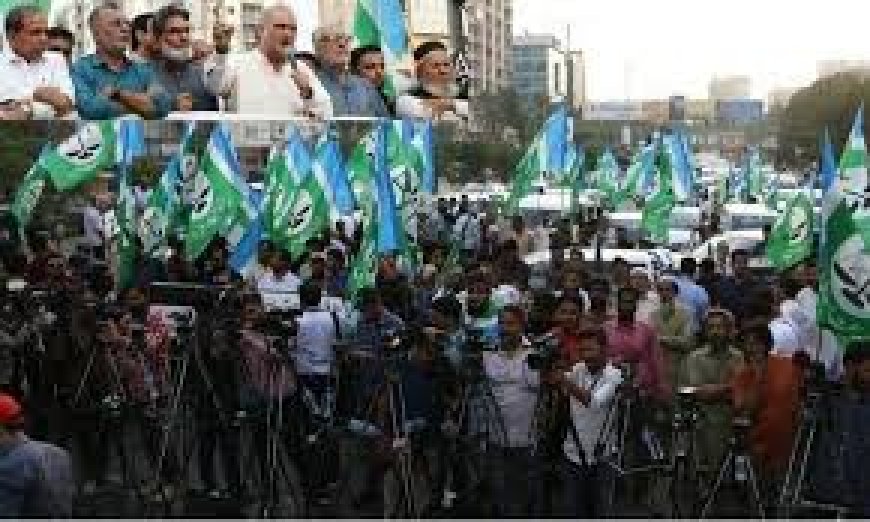Jamaat-e-Islami's Protest for Reviewing IPP Contracts
bcnewsone.com, breaking news, bcnewsone,bcnews

Jamaat-e-Islami's Protest for Reviewing IPP Contracts
The Jamaat-e-Islami (JI) party, led by its Karachi chief Munem Zafar, has initiated a series of protests and sit-ins demanding a review of the contracts with Independent Power Producers (IPPs). This movement aligns with a larger demonstration taking place in Rawalpindi, with the goal of addressing exorbitant electricity bills and economic hardships caused by these agreements.
Background of the Protest
JI's protests stem from widespread public discontent over high electricity tariffs and inflation. The contracts with IPPs have been identified as a significant factor contributing to the rising costs. The agreements stipulate payments in US dollars, which adds to the financial burden due to currency fluctuations.
Key Demands of Jamaat-e-Islami
JI has outlined several demands to address the economic pressures faced by the populace:
- Renegotiation of IPP Contracts: JI calls for revising these agreements to reduce the financial burden on consumers.
- Reduction in Electricity Tariffs: A substantial decrease in electricity bills, particularly for consumers using up to 500 units, is sought.
- Abolition of Petroleum Development Levy: Removal of levies on petroleum products to lower fuel prices.
- Tax Reductions: JI demands a reduction in taxes on the agriculture and industrial sectors and elimination of taxes on essential goods like stationery.
- Economic Relief Measures: Measures to incentivize the industrial sector and provide employment opportunities for the youth.
Government Response
The government has shown willingness to engage with JI to resolve the issues. A three-member delegation, including Federal Minister for Information and Broadcasting Attaullah Tarar, met with JI's negotiation committee to discuss potential solutions. The government has hinted at a possible reduction in electricity prices and has formed committees to address the economic challenges highlighted by JI.
Public and Political Impact
The sit-ins and rallies have drawn significant public support, with large gatherings in Karachi and Rawalpindi. The protests have caused considerable inconvenience, leading to road closures and traffic disruptions. However, they have also brought attention to the economic hardships faced by ordinary citizens.
Conclusion
Jamaat-e-Islami's protests underscore the urgent need for economic reforms and fair energy policies in Pakistan. The party's demands reflect widespread public frustration with high electricity costs and inflation. As negotiations between JI and the government continue, the outcome will likely have significant implications for the country's economic landscape and energy policies.

 Admin
Admin 





